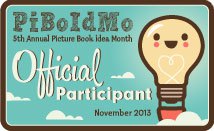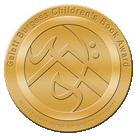I love this post from the
Institute of Children’s Literature’s E-News editor, Jan Fields. about writing with rhythm. It breaks down the basics and if you know the basics, you can build from there.
Have You Got Rhythm?
All speech has rhythm. Rhythm is just the natural pattern of stressed and unstressed syllables. Humans are naturally drawn to rhythm. Our heartbeat sets our entire lives to a regular rhythm. Children love rhythm. Give a couple sticks to a 10-year-old and he will certainly end up beating out a rhythm on the nearest surface (after he is done playing sword fight, of course). Long before babies can speak or even understand, some can sway to a strong rhythmic beat in music. So it is no surprise that the rhythm
in your verse is very important.
The difference between the rhythm in verse and the rhythm in ordinary writing is that verse rhythm has a discernable and regular pattern. Normal speech will often fall into a discernable pattern for a sentence of two, but it does not stay regular.
Because long patterns of verse can be broken down into its individual units, these units
have been given names. The basic unit of rhythm in a verse is called a foot. Let’s look at some different kinds of feet.
An Iambic Foot has an unstressed syllable followed by a stressed:
di-LUTE
con-SULT
A Trochaic Foot has a stressed syllable followed by an unstressed:
TRO-phy
KI-osk
In a Spondaic Foot, both syllables are stressed, like beating a drum two hard beats:
BLACK BEAR
RED CHAIR
In an Anapestic foot, you have two unstressed, followed by a stressed:
to con-FRONT
to con-FUSE
There are lots of kinds of feet and you can write lovely verse without knowing the names of any of them. But you do need to know the nature of them. These feet come together to form lines of verse. And the lines of verse have a clearly discernible pattern. Once you choose the rhythmic pattern for your poem, you should stay in that pattern throughout, unless you have good reason for changing.
After reading an excellent guide to determining meter in verse posted on a message board by J. L. Bell, I tinkered with his steps a little to best suit my style (and isn’t that what we always do when we learn something new for our writing?) Let’s try applying this step-by-step approach to a few lines of verse to see if we can determine the
pattern of meter in a verse I’ve begun:
I’m tired of winter’s mucky mush
I’m tired of feeling cold
I long for springtime’s virgin blush
And gardens full of gold.
What is the rhythm pattern for this bit of verse? Some people can judge the rhythm by clapping while they read it aloud or patting it out on their leg, automatically clapping or patting on the stressed syllable. Some of us cannot. For the meter impaired, there is a
process you can go through.
(1) For any word over one syllable, simply look them up in the dictionary and see.
I’m tired of WINter’s MUCKy slush
I’m tired of FEELing cold
I long for SPRINGtime’s VIRgin blush
And GARden’s full of gold.
(2) Now, we still have quite a few short words, which of those should be stressed? We tend to stress verbs (other than being verbs) so we have:
I’m TIRED of WINter’s MUCKy slush
I’m TIRED of FEELing cold
I LONG for SPRINGtime’s VIRgin blush
And GARden’s full of gold.
(3) Although we do usually stress verbs, we normally don’t stress being verbs, and small words or connecting words…thus, I’m, of, for, and would not be stressed. But our last five longer words – slush, cold, blush, full and gold have sufficient importance to the poem, and sufficient length to be stressed. Thus, if we look at the stressed and unstressed syllables in the poem we have:
I’m TIRED of WINter’s MUCKy SLUSH
I’m TIRED of FEELing COLD
I LONG for SPRINGtime’s VIRgin BLUSH
And GARden’s FULL of GOLD.
Thus this little rhyme is made up of a pattern of unstressed/stressed/unstressed/stressed – clearly iambic feet. And the pattern
of stressed syllables per line is:
I’m tired of winter’s mucky slush (four stressed)
I’m tired of feeling cold (three stressed)
I long for springtime’s virgin blush (four stressed)
And garden’s full of gold. (three stressed)
If I add more verses, I would want to continue this pattern of iambic feet with 4-3-4-3 stresses per line. Editors expect your poetry to scan, to have a consistent meter that follows a pattern. Most poets write by “ear” and for some, this is an innate talent. For others, they may think they have an ear for meter, but find that their poetry is rejected again and again. If you’re suffering repeat rejections — give your poetry a little meter exam. Be sure each poem does have a pattern and that the pattern is used consistently.
If you deviate from the pattern, be sure you do so purposefully so that the
reader gets a sense that the poem sounds different because it needs to
dramatically. Meter can be a bucking bronco for new poets but breaking that
horse is essential to making the sale. You may write by ear but developing
poetry pitch takes time. In the meanwhile, take the time to give your meter a
check-up. You’ll be glad you did!














